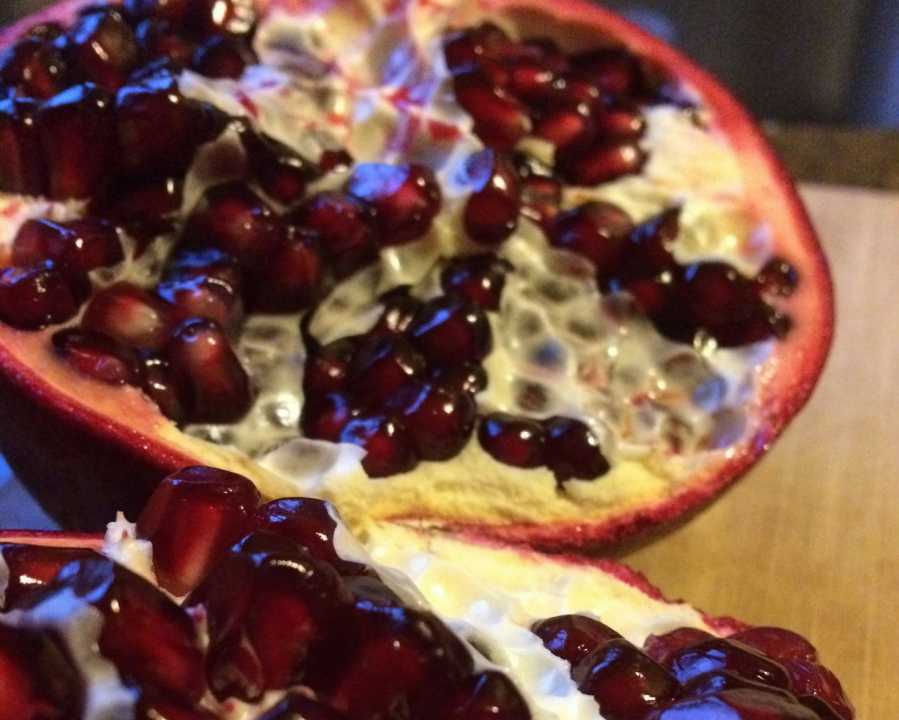The Power of Pomegranates
Pomegranate seeds are the edible part of this powerful fruit.
December 7, 2015
An original native from Iran, the pomegranate comes from a small deciduous tree that bears fruit, called the punica granatum. Over the years, it became known as a symbol of health and eternity. The word pomegranate comes from the latin word meaning “seeded apple.”
The pomegranate has many uses, including fruit as food, juice to kill parasites, the blossom was crushed to make a red dye, and the peel was used to dye leather. Now, it is most commonly used as food. The inside of the pomegranate holds hundreds of juicy red seeds.
“Pomegranate seeds are addicting,” Senior Ben Phelps said.
Pomegranate juice is available in stores all year round. Beginning in September, pomegranates begin to sell in grocery stores and last through January.
“We try to carry pomegranate seeds most of the year but when it is not in the winter, we have the seeds sold in a container and not in the fruit,” Kowalski’s employee said.
They are best in the winter months, having a richer taste than it would in September.
“We sell a lot more pomegranates during the winter season,” a Cub employee said.
Pomegranates have countless health benefits. It is the most antioxidant of all fruits and this means it helps fight diseases. They also have immune supporting effects. Pomegranates lower cholesterol/other cardiac risks and blood pressure.
Pomegranate seeds are filled with nutrients, such as Fiber (7 grams), Protein (3 grams), Vitamin C and K and Potassium. One cup of seeds contains 24 grams of sugar and this gives them a sweet taste. Pomegranate juice has been found to have three times the antioxidant activity of red wine and green tea.
“I eat the seeds before many of my ping pong matches,” Phelps said.
According to the US National Library of Medicine, a study was conducted with 19 athletes (10 male and nine women), and some were given one gram of pomegranate extract 30 minutes before running on a treadmill, while another group did not receive the extract. As a result, they had enhanced blood blow. This led to a delay of fatigue and an efficient workout.
Another study was performed with a randomized trial of pomegranate juice in older subjects with age-associated memory complaints using memory testing and functional brain activation. Thirty-two subjects were randomly assigned to drink 8 ounces of either pomegranate juice or a flavor-matched placebo drink for 4 weeks. Subjects received memory testing and blood draws for peripheral biomarkers before and after the intervention. Investigators and subjects were all blind to group membership
After four weeks, only the pomegranate group showed a significant improvement in verbal memory. Furthermore, compared to the placebo group, the pomegranate group had increased activity during verbal and visual memory tasks. These results suggest a role for pomegranate juice in memory function and brain activity.





























































